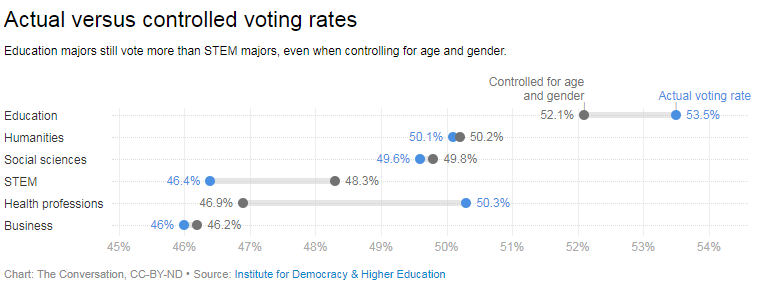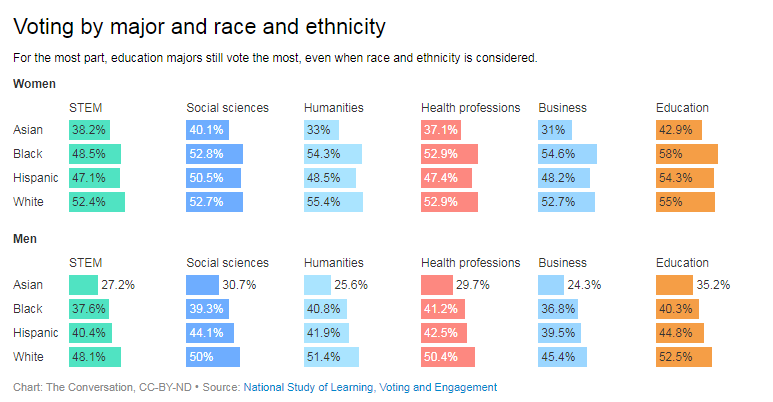- Facebook360
- Total 360
My colleague Inger Bergom has a piece in The Conversation with entitled “Why don’t STEM majors vote as much as others?” They are analyzing data from the two million college students who are included in our National Study of Learning, Voting and Engagement at Tisch College.
The raw correlations between college majors and voting rates are pretty substantial. In 2016, more than half of all education majors voted (53.5%), which was more than 7 points ahead of the rate for business students.
But majors attract different demographic groups. For example, women vote at somewhat higher rates than men. If more education majors were men, the turnout rates in education programs would fall. By the same token, STEM turnout would rise if STEM majors recruited more women. However, education majors would still be ahead.

Once you zero in on major, race and gender together, you see some interesting patterns. African American women who major in education voted at a 58% rate in 2016, well over double the rate of Asian-American men who majored in business.

Self-selection must be part of the story: people who are more interested in the kinds of issues that arise in politics may also enroll in majors like education. Still, there is room to improve the civic education that STEM and business majors experience.